Ethical Issues in IT: Analysis of Data Collection and Ethical Concerns
VerifiedAdded on 2023/02/01
|6
|997
|23
Essay
AI Summary
This essay delves into the ethical dimensions of data collection in the realm of Information Technology, specifically examining the controversial practices of Cambridge Analytica. The author initiates the discussion by introducing the core ethical theories, including deontology, utilitarianism, virtue ethics, and the social contract theory, providing a framework for analyzing the ethical implications of data harvesting. The essay then meticulously applies these theories to the Cambridge Analytica case, evaluating the company's actions in relation to each ethical framework. It scrutinizes the collection of behavioral information, the use of personality traits to influence political campaigns, and the potential breaches of individual rights and privacy. The analysis includes the ethical considerations of online questionnaires, the extrapolation of personality traits without consent, and the impact of these actions on the democratic process. The essay concludes with a balanced assessment, acknowledging both the benefits and the ethical transgressions of Cambridge Analytica's practices, and offers a comprehensive view of the ethical challenges in IT.
1 out of 6
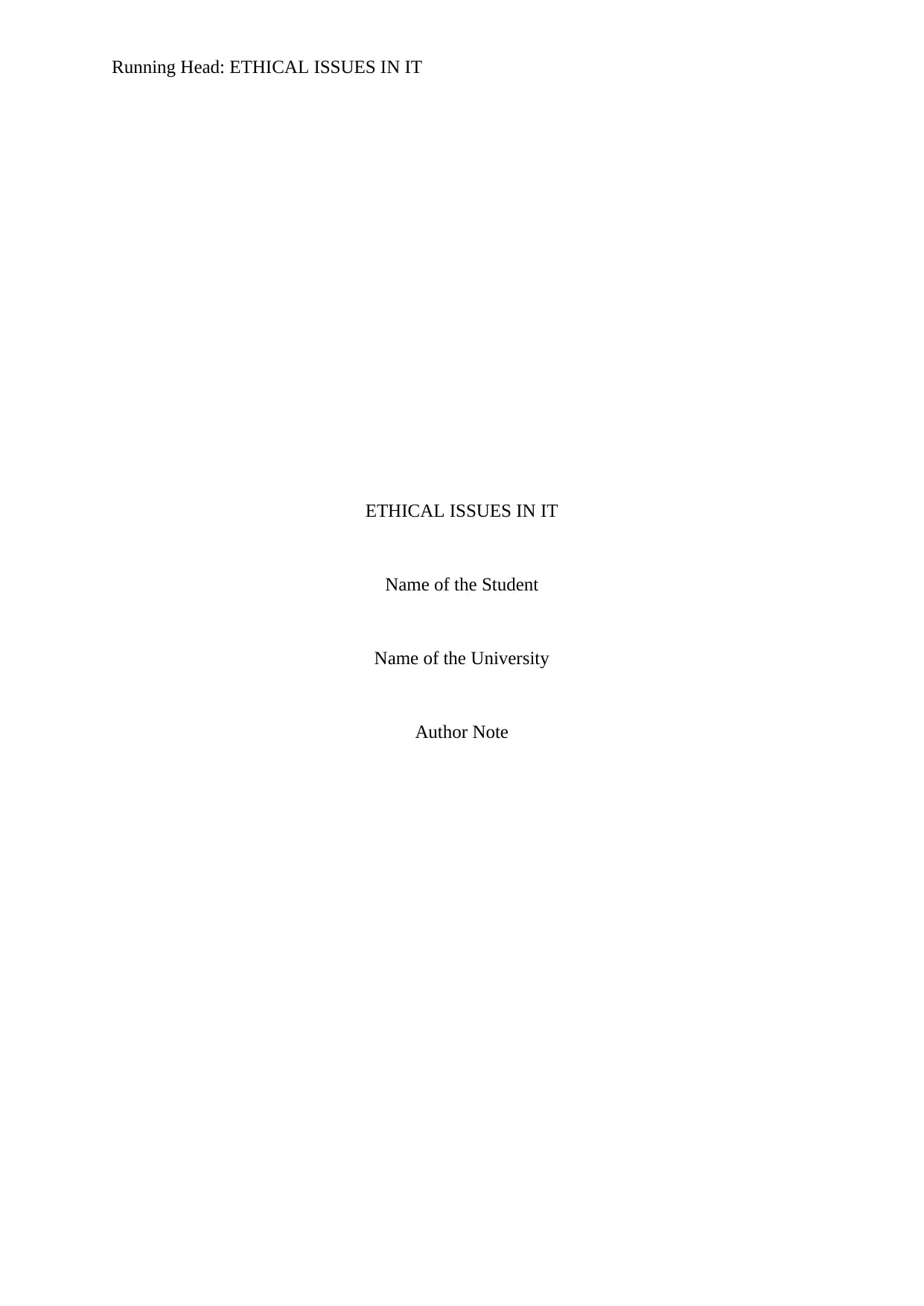
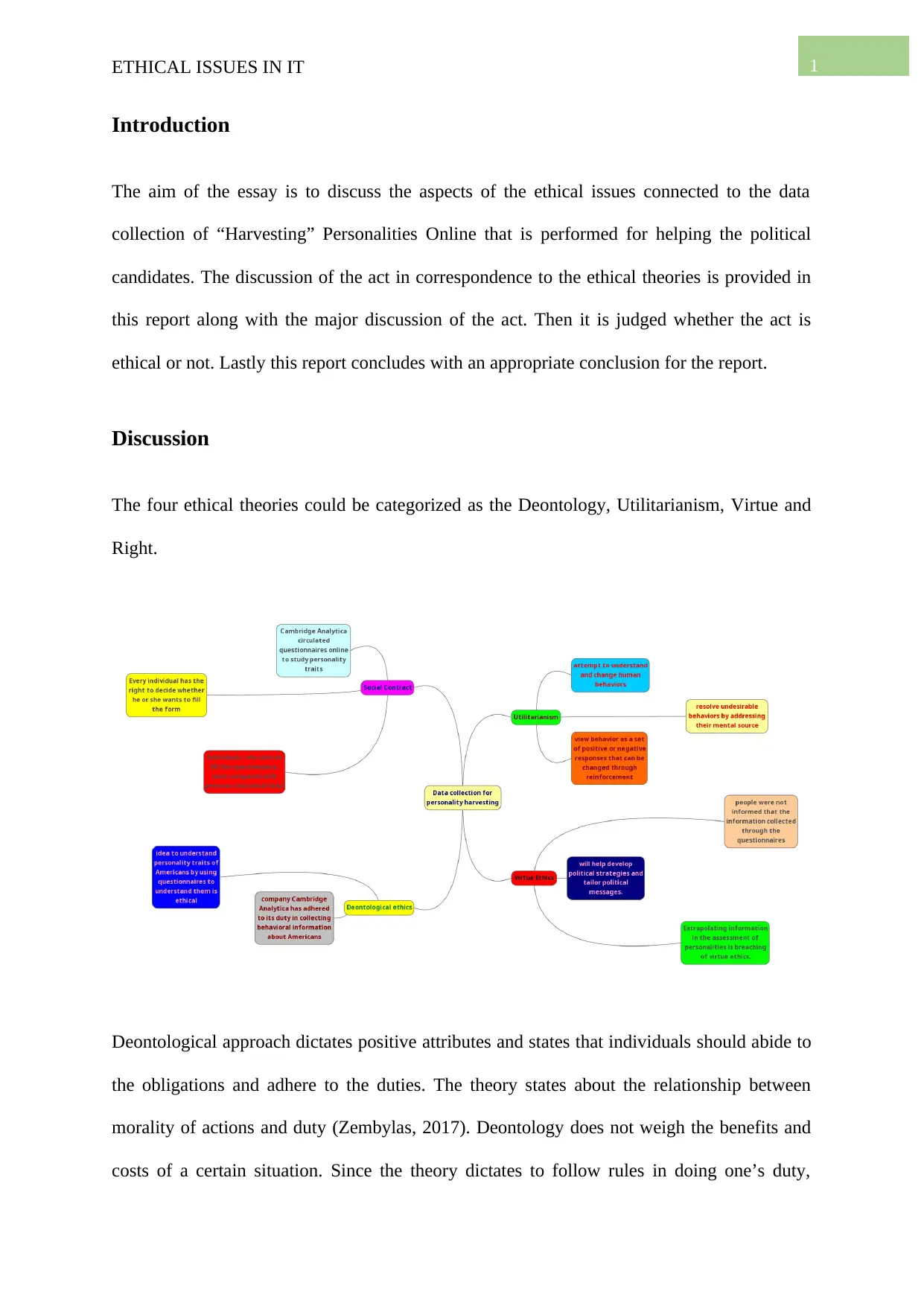
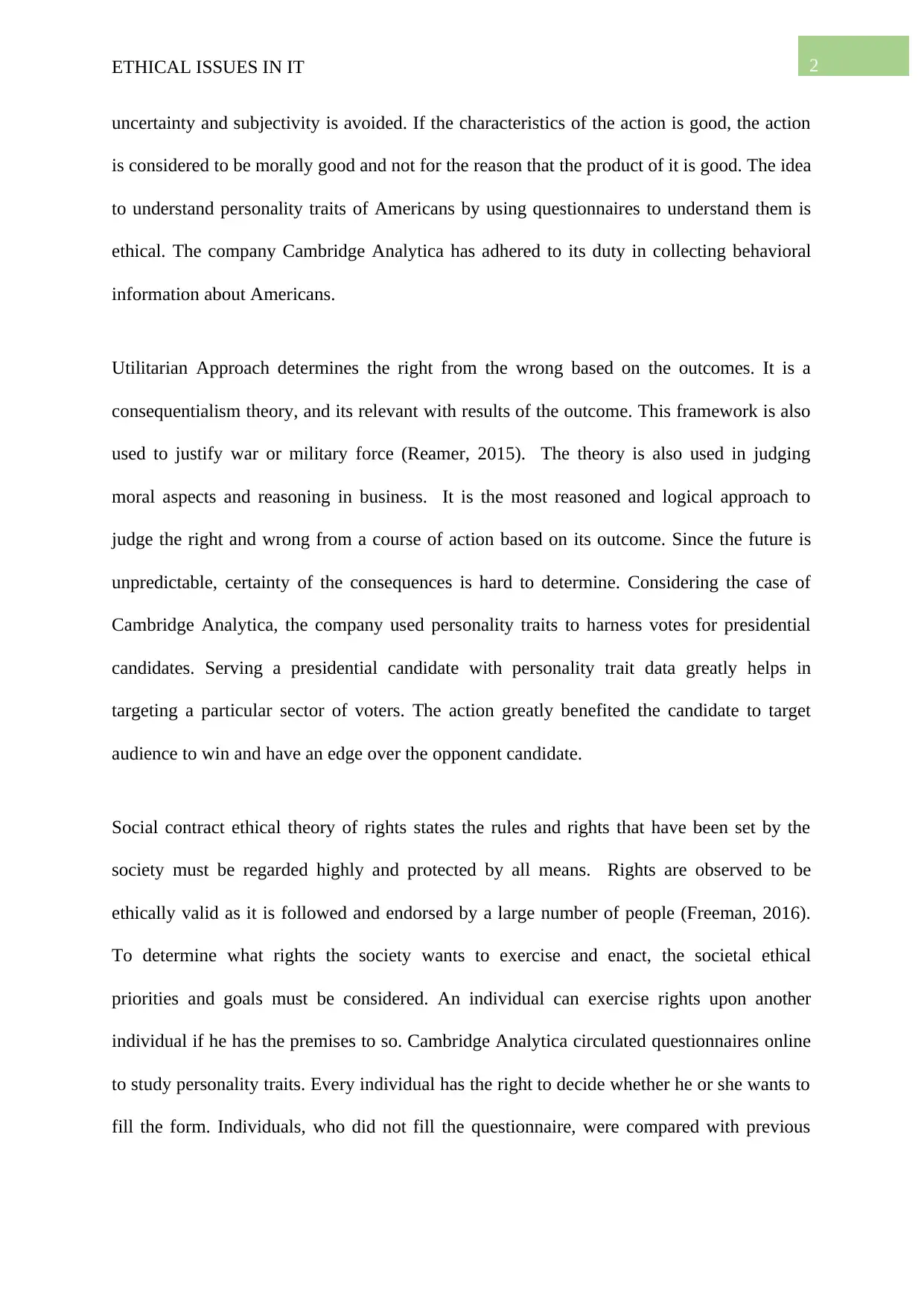

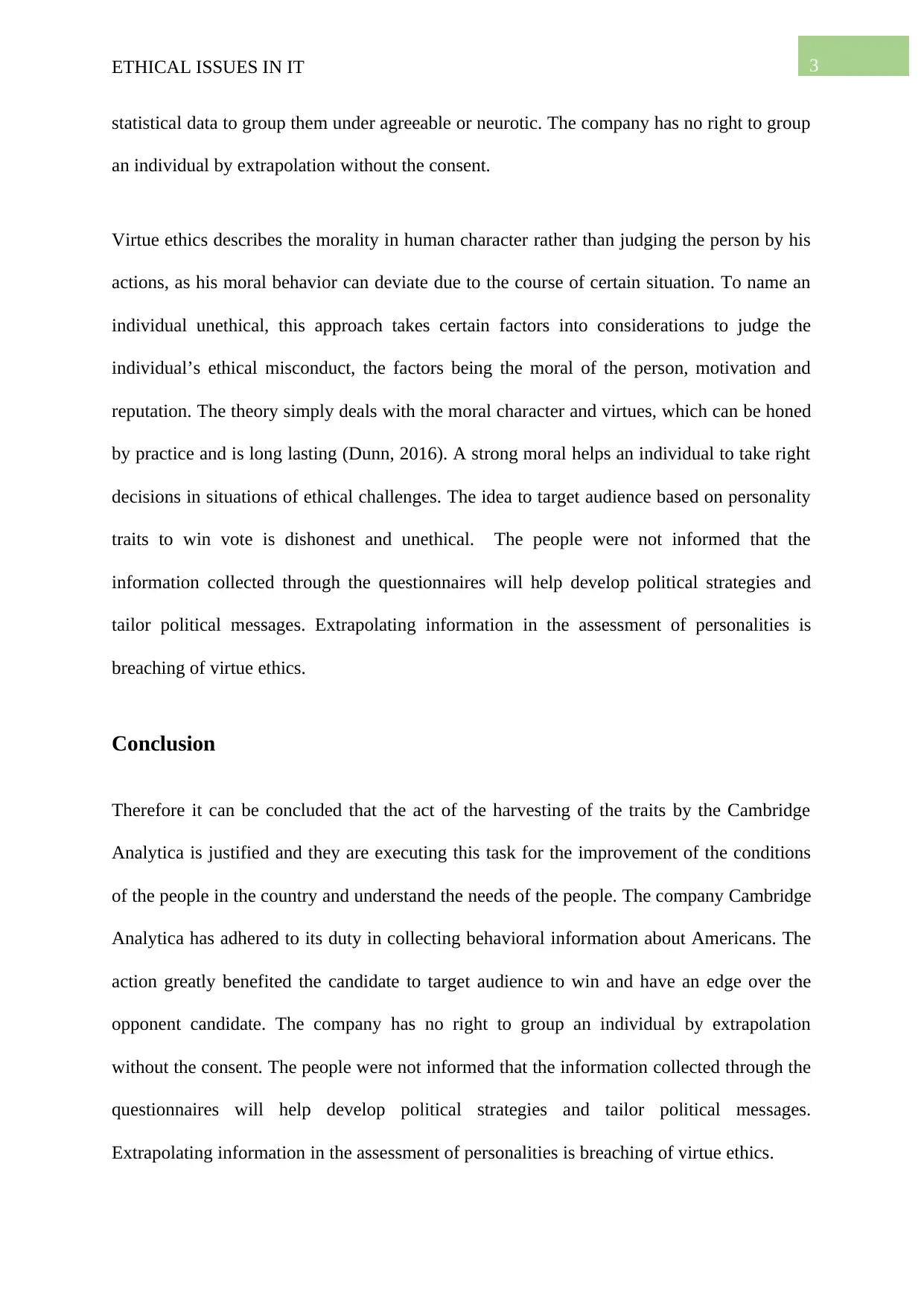

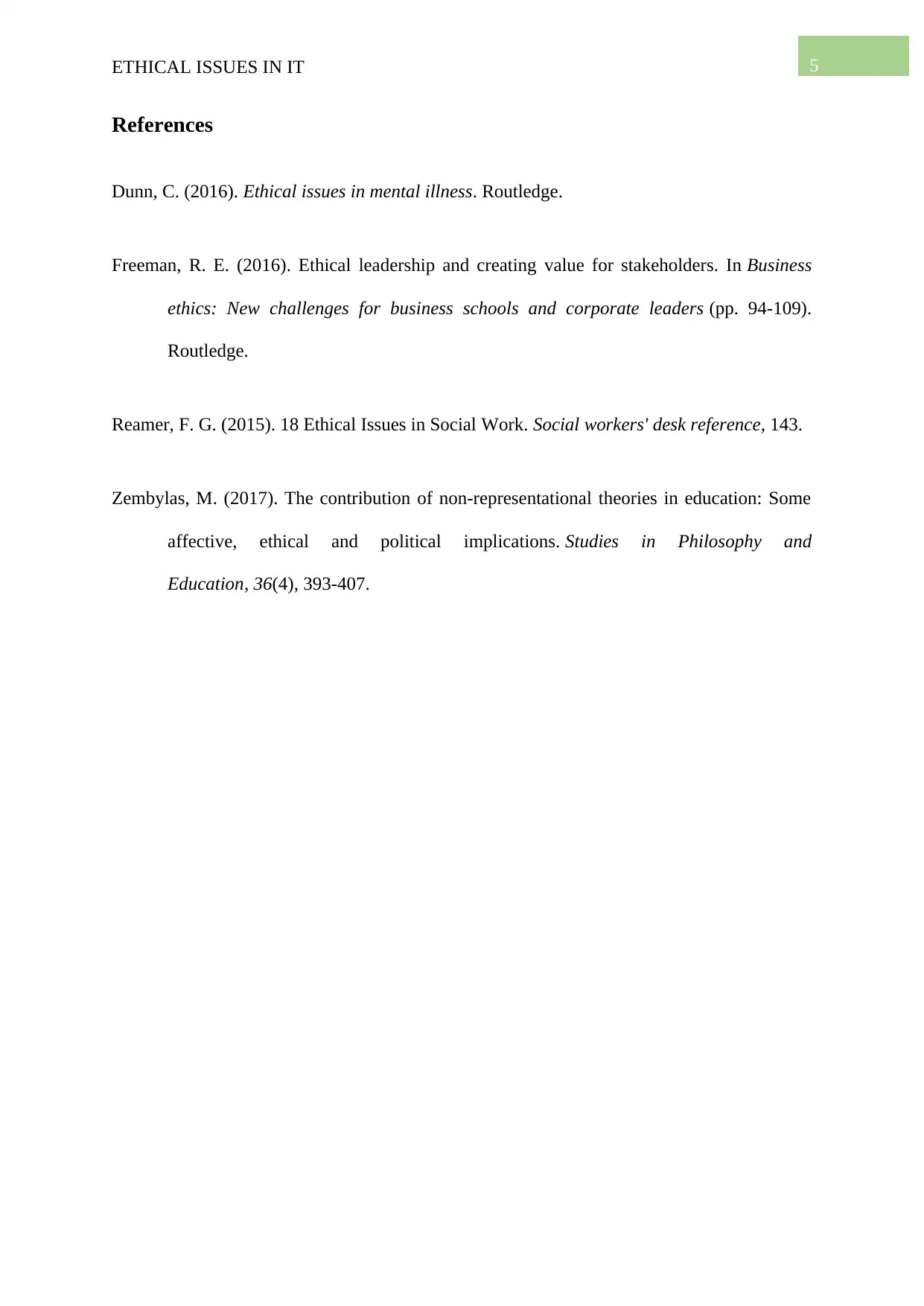






![[object Object]](/_next/static/media/star-bottom.7253800d.svg)